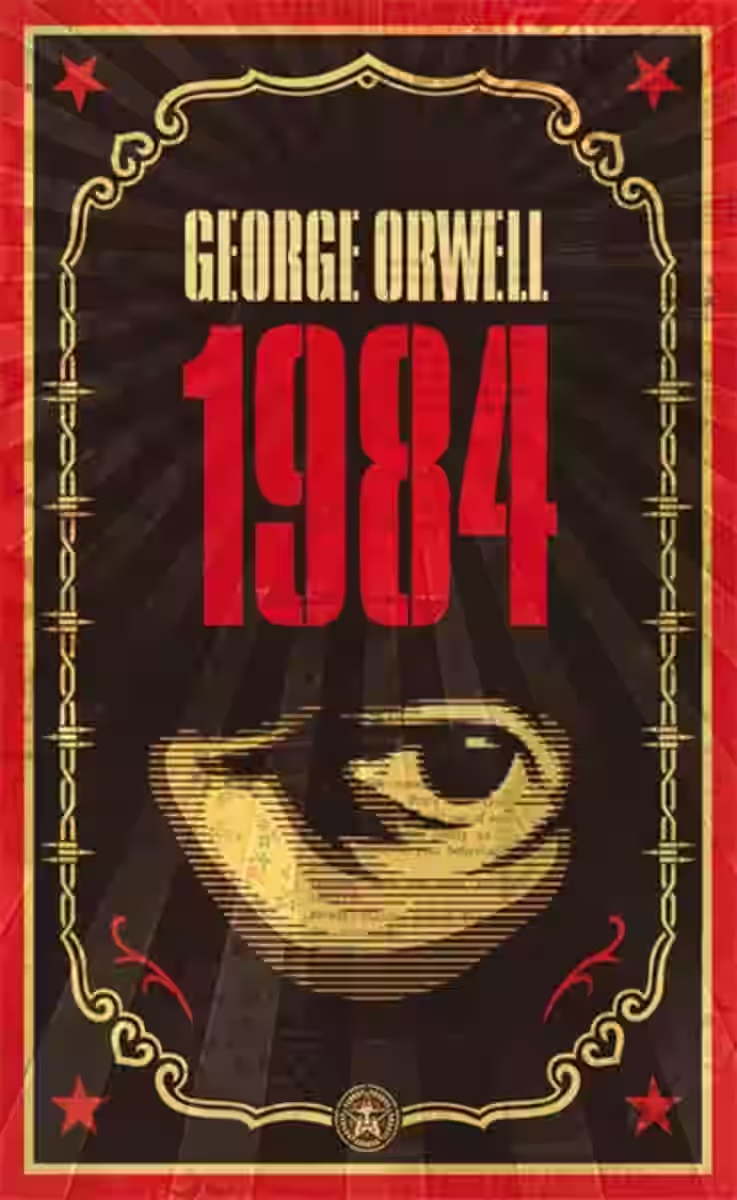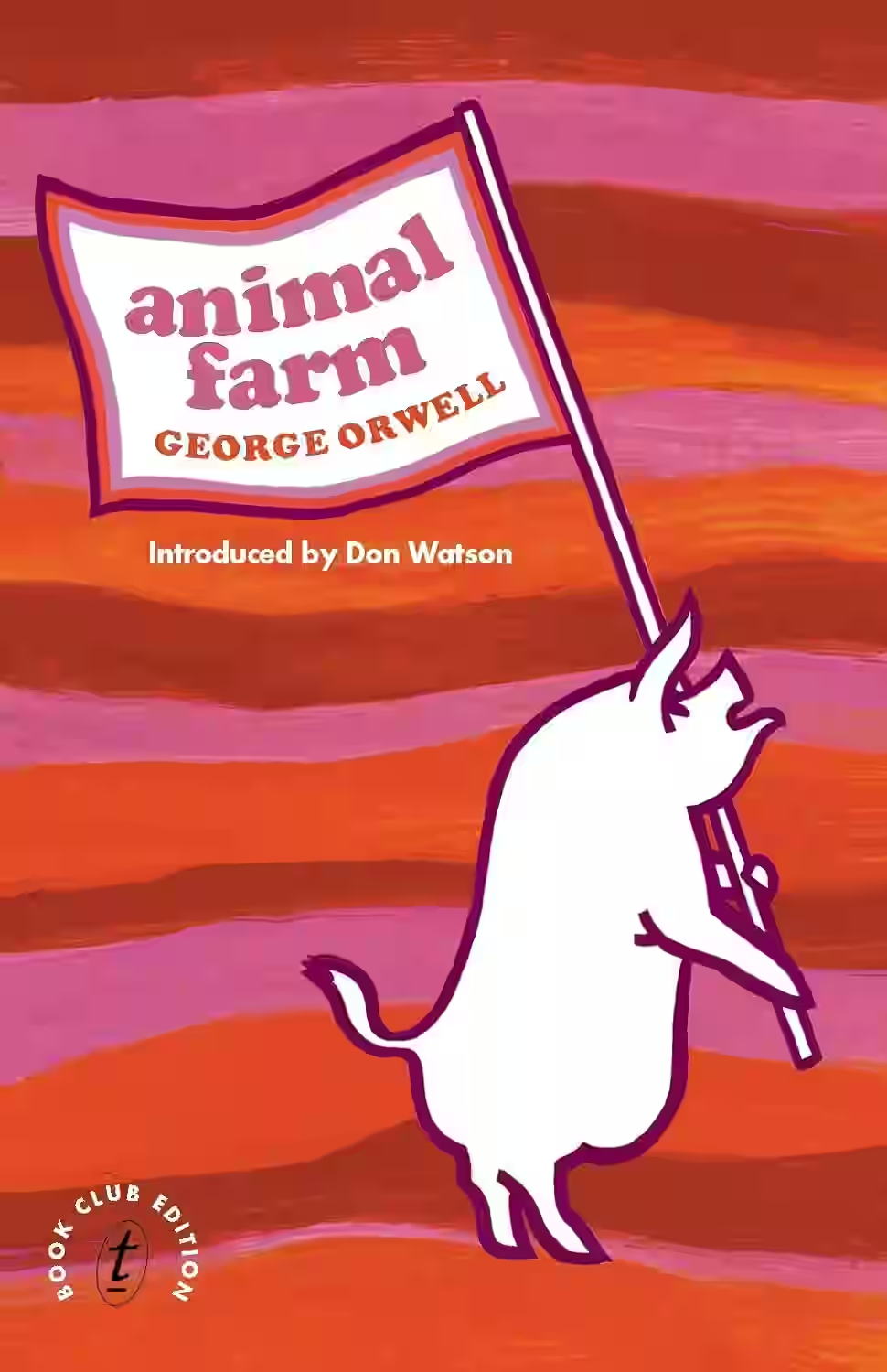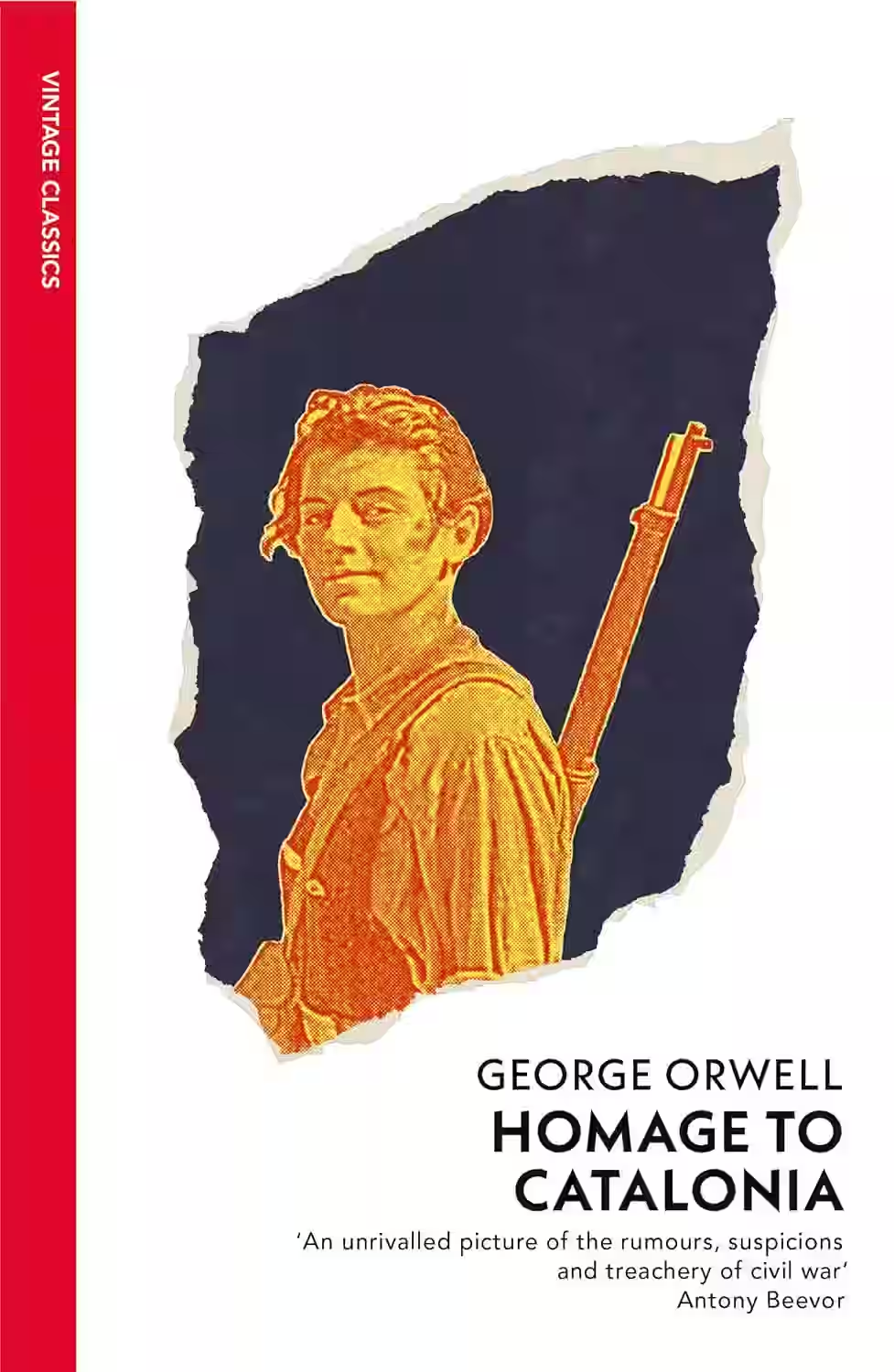George Orwell
A sharp critic of totalitarianism and social injustice, George Orwell is renowned for his dystopian novels Nineteen Eighty-Four and Animal Farm. His clear and direct prose exposed the dangers of political manipulation, surveillance, and the abuse of power. Orwell's essays also offered insightful commentary on politics, literature, and culture, making him a significant intellectual figure of the 20th century. His works remain highly relevant in understanding contemporary societal challenges.

In a totalitarian future Britain, Winston Smith secretly rebels against the omnipresent government that controls reality itself through surveillance, propaganda, and the manipulation of language and history. When he falls in love with Julia, another rebel, their forbidden relationship becomes an act of political rebellion. The novel explores themes of truth, power, and human dignity in a world where independent thought is a crime.

Animal Farm is a satirical fable by George Orwell, where farm animals overthrow their human owner, seeking equality. But as a new leadership rises, the ideals of their revolution are corrupted, revealing a powerful allegory about power and betrayal.

In 'Homage to Catalonia' by George Orwell, the author recounts his personal experiences as a soldier during the Spanish Civil War. Orwell provides a raw and honest portrayal of the complexities of war, politics, and propaganda. The book delves into themes of loyalty, disillusionment, and the struggle for justice. Orwell's writing vividly captures the brutality of the conflict and the internal struggles faced by those fighting for their beliefs. 'Homage to Catalonia' is a gripping account that offers a unique perspective on the realities of war and the impact of political ideologies on individuals.